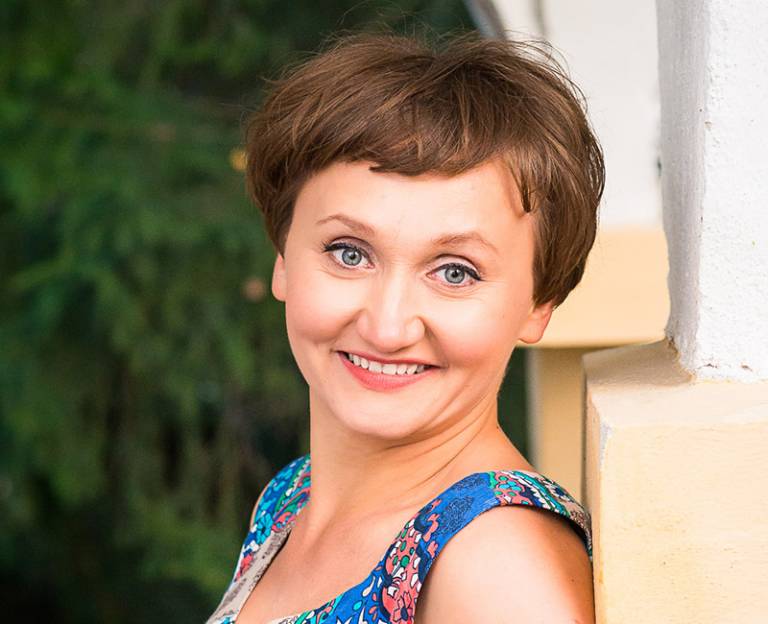Introducing an Amara Collaboration practice.
The young man was sitting in front of four coaches having an interview conversation for an international internship practice. One coach told an inspiring story about the amazing, award-winning horse farm where the internship would occur. Another coach was pumping up the young man‘s motivation and self esteem. The young man was sitting silent, dignified and worried simultaneously, his face questioning, one part of him listening, another dwelling in his secret world.
‘Do you want to go to the internship?’ I asked.
***
‘Maybe’, he answered.
‘Do you see your life or work related to horses?’ I asked
‘Maybe,’ he answered.
Maybe, maybe, maybe, maybe…. echoed in my head.
Maybe, means that one part of you answers ‘Yes’ and another – answers ‘No’. ‘Tell me for what you say – No, and for what you say – Yes.’ – I asked suddenly.
‘I love horses very much. I rode horses before I learned to walk. Every day at five in the morning I feed a hundred horses. I go to them after school and leave them late at night. I want to be the fifth generation in the horse farm following my father, but it is hard every time to see horses transported to the slaughterhouse’.
I share this story because it significantly shifted my personal pattern of “I-know-it-all” to the much more generative and creative practice of “May-be”, that I often use as an effective instrument to reframe conflicts, tough discussions, or problems with “no solution”. Last but not least, this practice teaches me to deal with uncertainty and to invite uncertainty as a transformative condition.
Reframing and refreshing meetings
It is quite common for meetings in organizations to treat the answer “May-be” as a lack of decision-making power or the expression of ignorance. For example, the Chair after a long discussion asks participants “Can we launch this product within a month in order to follow our plans?” Most of the board votes for the launch, but a few say ‘May-be’. The response is likely to be: “What is not clear? We will never finish our discussions. We just talk and talk and talk? Why do you sabotage us all? Can’t you make a decision as all the others agree? Can we decide without you?” and etc…
If we appreciate this May-be stance as active, we can hear an invitation to inquire; we can reveal the incongruities that will help us to make an even more effective and timely decision. We may ask the “Maybe” person to make a separation, declaring where he agrees and where he disagrees. We may come to an answer like “I agree that the product concept is really good, I agree we can start the launch as planned, but I think we lack resources to make it high quality because two more projects were recently launched. So, if we start the new product now we risk our existing products and orders.“ Here we have an example how May-be helps to reframe a conversation and to find more thoughtful solutions.
Dance of light and shadow
This simple practice is very powerful as it starts a transformation (or deconstruction) of our mind-set. It helps to create a space for uncertainty and for what is emerging in front of us. We open our minds to listen to others, to the inquiry of our thoughts and actions and inspire productive tension for mutual co-creation.
My invitation is if you find yourself thinking that you already have the best solution to the question or if someone is absolutely confident about the strategy for reaching our performance indicators, or if someone sees a situation as only tough and negative, bring a May-be and split the single and solid thought into opposites: for what we/you say “Yes” and for what we/you say “No”. Sometimes, when we are very confident, it is really hard to see the negative side effects of our solutions and sometimes, when we are disappointed, it’s hard to see the positive sides. Carl Jung had said, “Where love rules, there is no will to power and where power predominates, there love is lacking. The one is the shadow of the other”. Surely, what we want is powerful love.
Toward leadership maturity
Our ability to appreciate positive as well negative feedback as helpful and constructive shows our maturity. The ability to see the light and shadow of our decisions nurtures our awareness, draws links between separated subjects and helps to see systemically. To make decisions consciously appreciating both the light and shadow parts of it, understanding opportunities and risks simultaneously, is not an easy. However that is exactly the way towards higher stages of our mindset development.
To the question why there are so few leaders who express the highly mature action-logics? Amara co-founder Professor William Torbert in his book “Action Inquiry: The Secret of Timely and Transforming Leadership“, writes:
“One answer is that the effort to listen into the four territories of experience reveals many distances, gaps, incongruities, and disharmonies. To experience such incongruities is not just an intellectual exercise, but generates an existential, emotional shock. Who among us would voluntarily take on the continual suffering of witnessing the gaps among intentions, espoused values, actual practices, and outcomes in ourselves, in others, in organizations, and in larger social processes? Who struggles to transform such suffering, not into imprisoning neuroses or social victories at others’ costs, but, rather, into emancipating consciousness that graces each meeting afresh?“
Wishing you courage “Amara Collaboration” invites you to start or continue your personal transformational journey on-line by attending our 5 webinars’ course: “Aware leadership. Prepare”.
Author
